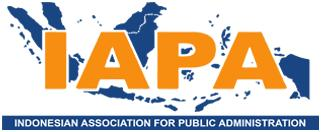Review Of Smart Environment Tourism Indicator Policies In The Development Of The Likupang Tourism Special Economic Zone
Abstrak
This research is to analyze the application of tourism smart environment policies in the development of the Likupang Tourism Special Economic Zone (SEZ) in North Sulawesi, Indonesia. The data publication policy is explained by using a qualitative approach method. Assessment based on scores based on tourism smart environment indicators. The results of the study show that the tourism potential in the Likupang area is the government's policy by proposing this area as a tourism special economic zone. The policy was published in the form of Government Regulation number 84 of 2019 as a Legal Basis with an area of 197.4. The first question which describes the findings of the literature carried out in journal articles shows that the vision of a smart environment tourism policy in the development of the Likupang Tourism Special Economic Zone in the era of the COVID-19 pandemic has been carried out a lot. The second question is the researcher's attempts to trace the perception of stakeholders to the understanding of stakeholders about whether or not it is necessary to develop a smart environment in the Likupang SEZ area using a smart environment tourism approach at an ecocentrism or supportive level. The third question can be seen from the process of implementing the Likupang SEZ which is the government's effort to develop regional tourism potential, of course with a smart environment tourism approach as well as a way to reduce emissions, manage waste and involve community participation.
Kata Kunci
Teks Lengkap:
PDFReferensi
Awad, E., Anderson, M., Anderson, S. L., & Liao, B. (2020). An approach for combining ethical principles with public opinion to guide public policy. Artificial Intelligence, 287, 103349.
Birkland, T. A. (2007). Agenda setting in public policy. Handbook of Public Policy Analysis: Theory, Politics, and Methods, 125, 63–78.
Chaniago, A. R., & Juwono, V. (2020). Implementasi Kebijakan Pengembangan Kawasan EKonomi Khusus Tanjung Kelayang. Jurnal Borneo Administrator, 16(2), 159–178.
Cochran, C. (1977). , et al. Cochran C.
D’Amico, G., Taddeo, R., Shi, L., Yigitcanlar, T., & Ioppolo, G. (2020). Ecological indicators of smart urban metabolism: A review of the literature on international standards. Ecological Indicators, 118, 106808.
Dredge, D. (2010). Place change and tourism development conflict: Evaluating public interest. Tourism Management, 31(1), 104–112.
Eichelberger, S., Peters, M., Pikkemaat, B., & Chan, C.-S. (2020). Entrepreneurial ecosystems in smart cities for tourism development: From stakeholder perceptions to regional tourism policy implications. Journal of Hospitality and Tourism Management, 45, 319–329. https://doi.org/10.1016/j.jhtm.2020.06.011
Indahsari, C. L., & Raharja, S. J. (2020). New Public Management (NPM) as an Effort in Governance. Jurnal Manajemen Pelayanan Publik, 3(2), Article 2. https://doi.org/10.24198/jmpp.v3i2.25342
Islam, A., Hossain, M. B., Mondal, M. A. H., Ahmed, M. T., Hossain, M. A., Monir, M. U., Khan, M. F. H., Islam, K., Khandaker, S., & Choudhury, T. R. (2021). Energy challenges for a clean environment: Bangladesh’s experience. Energy Reports, 7, 3373–3389.
Ismanto, S. U., Indira, D., & Santoso, M. B. (2023). Community Involvement Based on Community-Based Tourism Principles in the Development of Area-Based Tourism in Cirebon Regency. Jurnal Manajemen Pelayanan Publik, 6(2), Article 2. https://doi.org/10.24198/jmpp.v6i2.45278
Jiricka-Pürrer, A., Brandenburg, C., & Pröbstl-Haider, U. (2020). City tourism pre- and post-covid-19 pandemic – Messages to take home for climate change adaptation and mitigation? Journal of Outdoor Recreation and Tourism, 31, 100329. https://doi.org/10.1016/j.jort.2020.100329
Khan, A. R., & Khandaker, S. (2016). A critical insight into policy implementation and implementation performance. Viesoji Politika Ir Administravimas, 15(4).
Labolo, M. (2022). Implementation of the Public Sector New Normal Policy in The PostCOVID-19 Period. International Journal of Demos (IJD), 4(2).
Leckel, A., Veilleux, S., & Dana, L. P. (2020). Local Open Innovation: A means for public policy to increase collaboration for innovation in SMEs. Technological Forecasting and Social Change, 153, 119891.
Lee, T. H., & Hsieh, H.-P. (2016). Indicators of sustainable tourism: A case study from a Taiwan’s wetland. Ecological Indicators, 67, 779–787. https://doi.org/10.1016/j.ecolind.2016.03.023
Lingkungan, N., Ramah, S., Gumelar, L., Sikap, D., Lingkungan, R., Warga, P., Di, J., Kumuh, P., & Gumelar, G. (2016). Nilai Lingkungan dan Sikap Ramah Lingkungan Pada Warga Jakarta Di Pemukiman Kumuh. Jurnal Psikologi, 12. https://doi.org/10.24014/jp.v12i1.3007
Madubun, J., & Madubun, H. (2023). Challenges Faced By Partnership Governance In Regional Development Of Maluku Province. Jurnal Manajemen Pelayanan Publik, 6(2), Article 2. https://doi.org/10.24198/jmpp.v6i2.46475
Nilsen, P., & Cairney, P. (2020). 15. Policy implementation research. Handbook on Implementation Science, 368.
Ningrum, S., & Setiawan, T. (2017). Quo Vadis Kebijakan Kawasan Agropolitan di Indonesia? Jurnal Manajemen Pelayanan Publik, 1(1), Article 1. https://doi.org/10.24198/jmpp.v1i1.13551
Patrão, C., Moura, P., & Almeida, A. T. de. (2020). Review of smart city assessment tools. Smart Cities, 3(4), 1117–1132.
Purnaweni, H. (2014). KEBIJAKAN PENGELOLAAN LINGKUNGAN DI KAWASAN KENDENG UTARA PROVINSI JAWA TENGAH. Jurnal Ilmu Lingkungan, 12(1), 53. https://doi.org/10.14710/jil.12.1.53-65
Rahayu, G. E. (2022). ANALISIS HUKUM FASILITIAS PENANAM MODAL PADA KAWASAN EKONOMI KHUSUS PENIKTA DARI UU NO 25 TAHUN 2007 DAN UU NO 39 TAHUN 2009 TENTANG KAWASAN EKONOMI KHUSUS. Journal of Law and Policy Transformation, 6(2), Article 2. https://doi.org/10.37253/jlpt.v6i2.4997
Rahmayanti, H., Oktaviani, V., & Syani, Y. (2018). The implementation of smart trash as smart environment concept. E3S Web of Conferences, 74, 06003. https://doi.org/10.1051/e3sconf/20187406003
Renyaan, D. (2023). Evaluation of Collaborative Tourism Management during a Pandemic. Jurnal Manajemen Pelayanan Publik, 6(2), Article 2. https://doi.org/10.24198/jmpp.v6i2.46243
Ross, S., & Wall, G. (1999). Evaluating ecotourism: The case of North Sulawesi, Indonesia. Tourism Management, 20(6), 673–682. https://doi.org/10.1016/S0261-5177(99)00040-0
Roy, J., Hadjaat, M., Darma, D. C., Za, S. Z., & Kasuma, J. (2021). EKSPLORASI PARIWISATA PEDESAAN DI HUTAN DESA MERABU, BERAU (INDONESIA). Jurnal Pariwisata Pesona, 6(1), Article 1. https://doi.org/10.26905/jpp.v6i1.5641
Saksono, H. (2012). Ekonomi Kreatif: Talenta Baru Pemicu Daya Saing Daerah. Jurnal Bina Praja: Journal of Home Affairs Governance, 4(2), Article 2. https://doi.org/10.21787/jbp.04.2012.93-104
Saksono, H. (2013). Ekonomi Biru: Solusi Pembangunan Daerah Berciri Kepulauan Studi Kasus Kabupaten Kepulauan Anambas. Jurnal Bina Praja: Journal of Home Affairs Governance, 5(1), 1–12.
Siswahto, E., & Muryani, M. (2020). THE IMPACT OF TOURISM ON ECONOMIC IN NORTH SULAWESI: INPUT-OUTPUT ANALYSIS PERSPECTIVE. JDE (Journal of Developing Economies), 5(1), Article 1. https://doi.org/10.20473/jde.v5i1.17924
Susniwati, S., & Kurhayadi, K. (2023). Household Food in Bandung Regency. Jurnal Manajemen Pelayanan Publik, 6(2), Article 2. https://doi.org/10.24198/jmpp.v6i2.46387
Syamsir, A., Nur, M. I., Wahidah, I., & Alia, S. (2020). Kualitas pelayanan publik dalam pembelajaran berbasis daring di tengah pandemi Coronavirus Disease 2019. Sosial Dan Budaya, 1(1), 1–12.
Utami, S. B., & Pancasilawan, R. (2017). Kolaborasi dalam Pengelolaan Kawasan Konservasi Taman Buru Gunung Masigit Kareumbi Provinsi Jawa Barat. Jurnal Manajemen Pelayanan Publik, 1(1), Article 1. https://doi.org/10.24198/jmpp.v1i1.13550
Valle-Cruz, D., Alejandro Ruvalcaba-Gomez, E., Sandoval-Almazan, R., & Ignacio Criado, J. (2019). A review of artificial intelligence in government and its potential from a public policy perspective. Proceedings of the 20th Annual International Conference on Digital Government Research, 91–99.
Wahidah, I., & Suherman, D. (2022). Penta Helix Collaboration in Increasing Regional Tourism Competitiveness of Bandung City. Jurnal Manajemen Pelayanan Publik, 6(1), Article 1. https://doi.org/10.24198/jmpp.v6i1.39986
DOI: https://doi.org/10.24198/jmpp.v7i1.47415
Refbacks
- Saat ini tidak ada refbacks.
Jurnal Manajemen Pelayanan Publik Indexed By:



This work is licensed under a Creative Commons Attribution-ShareAlike 4.0 International License.


















21.png)



.png)